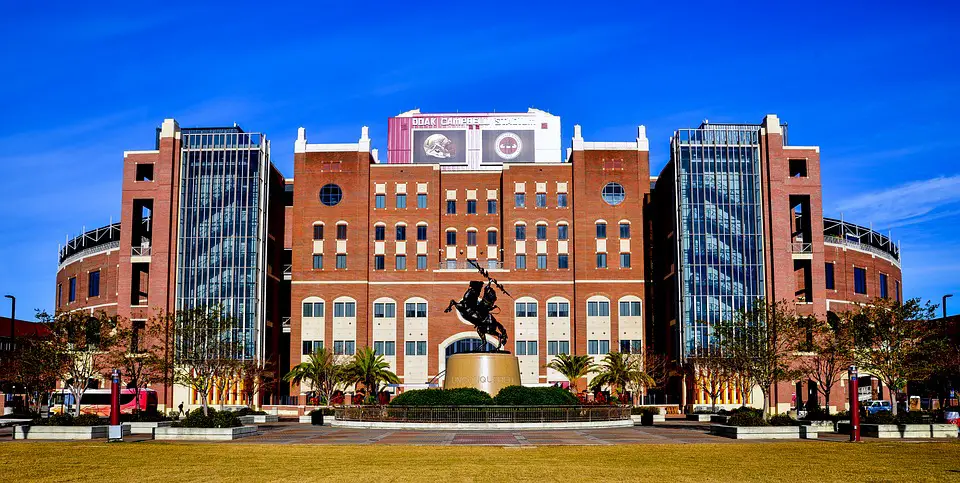Acceding to recommendations from the university’s anti-racism task force, Florida State University (FSU) is set to rename one of its buildings named after a former mayor and slave owner.
The building housing the College of Criminology and Criminal Justice was named after Francis Eppes, whose efforts were instrumental in the founding of the university in the 19th century. It will now be renamed in response to proposals put forth by the school’s Task Force on Anti-Racism, Equity and Inclusion.
As an Alumnus of Florida State University and current Homecoming Chief, I am joining the demands from students for the removal of Francis Eppes and Doak Campbell’s likeness from FSU.#EppesHasToGo #RenameDoak @FSUPresThrasher
— Caleb M. Dawkins (@calebdawkins2) June 26, 2020
In addition to renaming the building, FSU President John Thrasher has also agreed to permanently remove Eppes’ statue, which was placed outside the building. Instead, he revealed that his administrative team would work to “identify a museum or archival space to house the statue.”
The statue was removed from campus last year and Thrasher believes it should not be returned for public display again. “To do so would venerate a man whose actions are not in keeping with Florida State University’s values,” he said.
The task force sent Thrasher a number of recommendations in December, all of which have been accepted.
FSU’s Anti-Racism Measures
In the past several years, the Eppes statue has been moved back and forth within the campus a number of times. The statue was first relocated in July 2018 to a storage room without notice. However, it returned to the Mina Jo Powell lawn in 2019.
Besides renaming the criminology department and taking down the Eppes statue, President Thrasher has also agreed to rename the law school building named after B.K. Roberts. A statue of him will also be removed from the building. The decision to remove Roberts’ name and statue comes in response to the fact that he was responsible for preventing a Black man from entering the law school.
Professor of English Maxine Montgomery, who chairs the school’s anti-racism task force, said there is still work to be done regarding the longstanding tradition of racism. The committee will “take up issues surrounding the names of several other campus buildings or structures, including Doak Campbell Stadium and Kuersteiner Music Building,” she informed The College Fix.
What’s in a Name?
FSU now joins a list of educational institutions renaming campus buildings and structures to account for their history of slavery and racism.
To honor the efforts of enslaved workers who worked hard to build the colleges and universities of today, a growing number of educational institutions have removed or are working to remove the physical reminders of slavery and white supremacy on their campus.
In the last few years, prominent universities such as Yale, Georgetown, and Columbia have taken steps to address their ties with slavery.
Students & local activists rallying against Yale's Calhoun College, shouting "change the name." #wfsb pic.twitter.com/iyCs0xNYRN
— Matt McFarland (@MattMcFarland3) October 28, 2016
Things escalated after the Black Lives Matter protests as a flurry of colleges tried to address the issue of racial injustice by taking down statues of white supremacists or altering buildings associated with them.
Clemson University in South Carolina renamed its honors college, which was previously named after slave owner John C. Calhoun. Princeton University removed Woodrow Wilson’s name from its School of Public and International Affairs, citing the former American president’s “segregationist policies.”
“The board reconsidered these conclusions as the tragic killings of George Floyd, Breonna Taylor, Ahmaud Arbery, and Rayshard Brooks drew renewed attention to the long and damaging history of racism in America,” Princeton President Christopher Eisgruber said.



